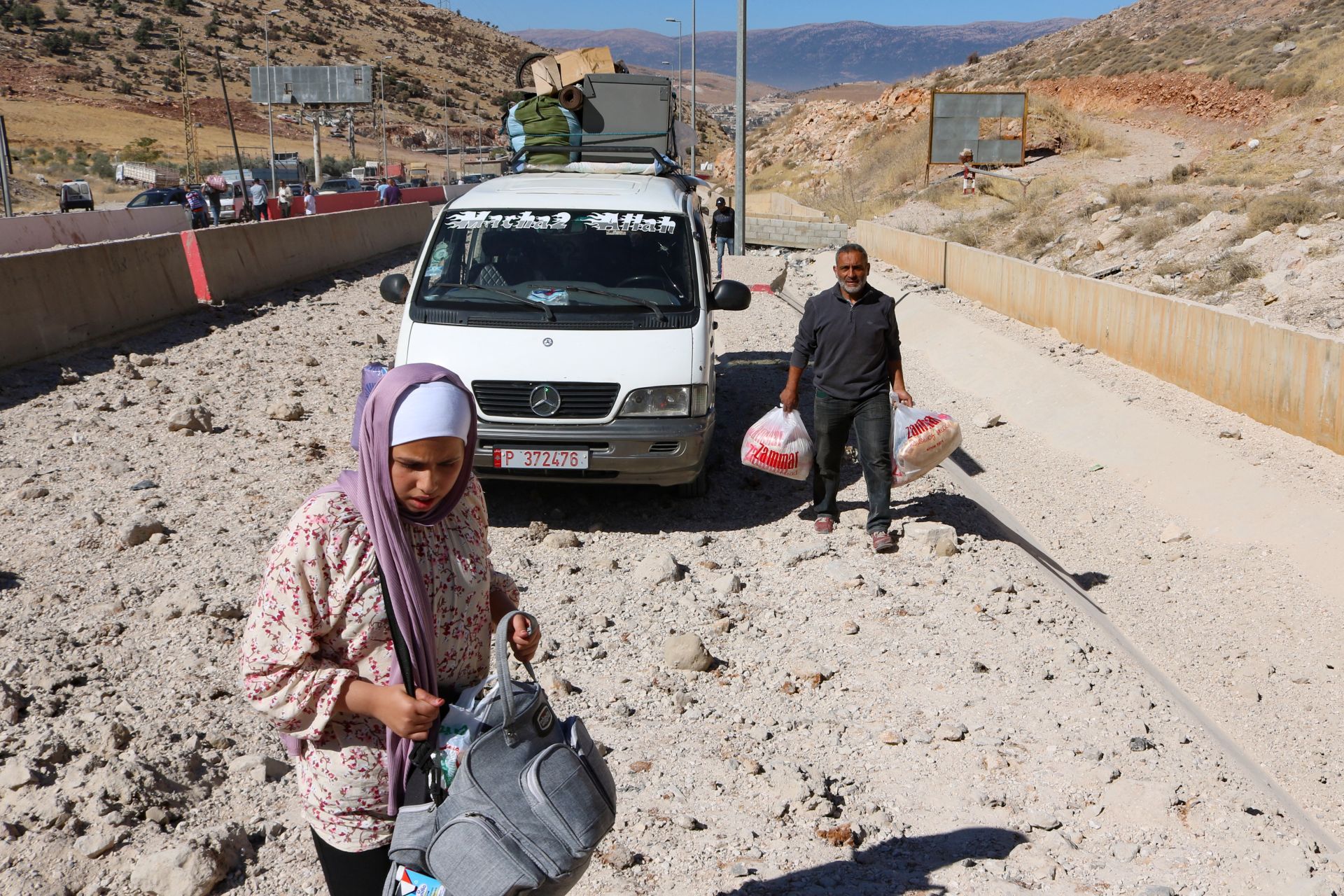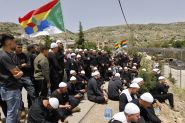- Home
- Middle East
- Human Rights Watch Warns of 'Serious Risks' to Civilians From Israeli Strikes

People fleeing Israeli bombardment in Lebanon walk along a road damaged by an Israeli strike in the area of Masnaa on the Lebanese side of the border crossing with Syria, on October 4, 2024. ©(Photo by HASSAN JARRAH / AFP)
Human Rights Watch (HRW) warned on Monday that Israeli strikes on the Lebanon-Syria border, which have recently intensified, pose a "serious risk" to civilians attempting to cross into Syria and could hinder humanitarian operations.
On Friday, the Israeli army conducted a raid in eastern Lebanon near the Masnaa border crossing, blocking the main road between the two countries.
Sleiman Khalil, a Syrian transport ministry official, told AFP on Monday that "traffic remains impossible on this route," although pedestrians can still use it.
Israel accuses Hezbollah of smuggling weapons through this route.
HRW stated that the strikes "prevent civilians from fleeing and obstruct humanitarian operations." The organization added, "An Israeli attack on a legitimate military target may be illegal if it is likely to cause disproportionate harm to civilians compared to the military gains."
The Israeli army claimed to have struck "an underground tunnel used for smuggling weapons across the border."
While Hezbollah may use the border for arms transfers, HRW noted that the Iran-aligned group "does not take all possible precautions to protect civilians."
Following the strike, an AFP photographer observed people walking around the crater to cross the border.
Filippo Grandi, the UN High Commissioner for Refugees, who visited Beirut on Sunday, stated that this strike "effectively blocks many people seeking safety in Syria."
According to Lebanese authorities, over 370,000 people, mainly Syrians, have crossed the border into Syria since the escalation of Israeli strikes in Lebanon began on September 23.
Before the escalation of the conflict between Hezbollah and Israel, the UN reported that over 774,000 Syrian refugees who had fled the civil war were registered in Lebanon, while Lebanese authorities estimated the number to be around 2 million.
With AFP
Read more



Comments